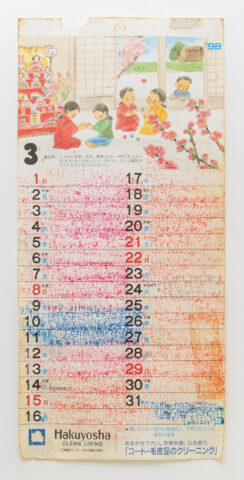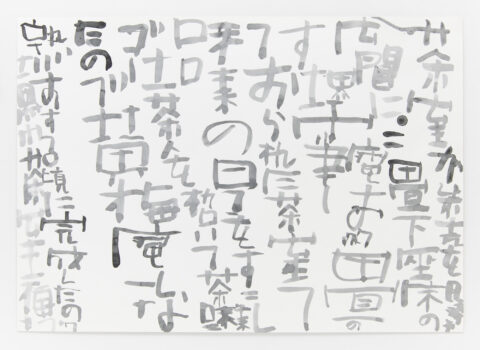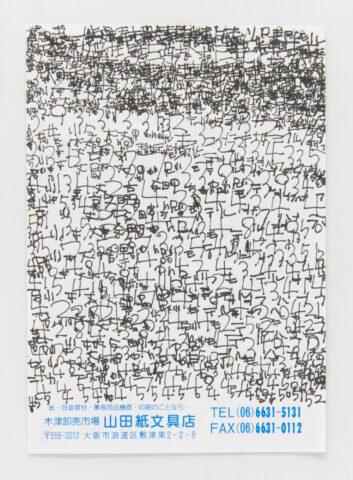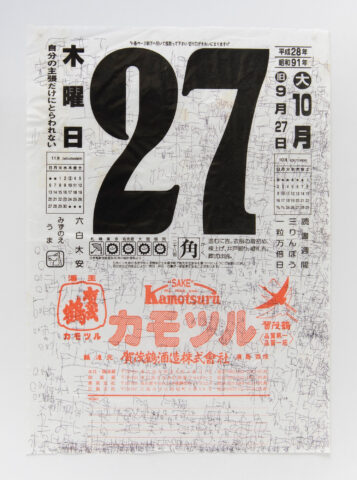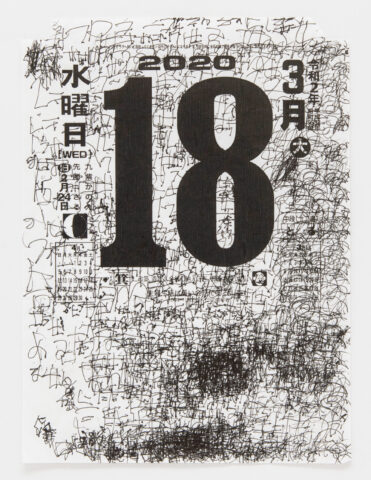Born in 1962, Osaka, Japan. Lives and works in Osaka.
From 1988 to 2016, Matsumoto worked at his family’s Chinese restaurant while, since 1995, regularly attending Atelier Hiko twice a week for art-making and fieldwork.
Matsumoto creates works by densely layering his distinctive writing on items like calendars, notebooks, and letters. The characters featured in his works are closely tied to the environment in which he grew up. Among these, kanji characters such as “舞” (dance), “男” (man), “女” (woman), “鬼” (demon), “火” (fire), and “命” (life) appear repeatedly. The origins of Matsumoto’s style can be traced back to his exposure to Kabuki theater at the age of three. He later learned calligraphy at school and in institutions, and his foundational skills were further developed through self-study by copying characters. Additionally, his family ran a Chinese restaurant, and he was responsible for picking up three daily newspapers for the business every morning. It seems that, by observing the headlines and the size of photographs in newspapers, he developed a unique sense of associating kanji with meaning, while also sensing the significance of social events.
Matsumoto began writing on calendars around 1997. Initially, he would fill in the small spaces on a calendar, which was posted on the refrigerator, with fine text over the entries his mother had written for each month. Since the sudden passing of his loving father in 2002, he began writing on daily calendars as well. After the passing of his father, he would write obsessively late into the night at home, almost as if possessed by the act of writing itself. The works created in the daily calendar became his lifelong project. This continued until the late autumn of 2020, when he was hospitalized due to a serious case of aspiration pneumonia, compounded by an infection from COVID-19.
